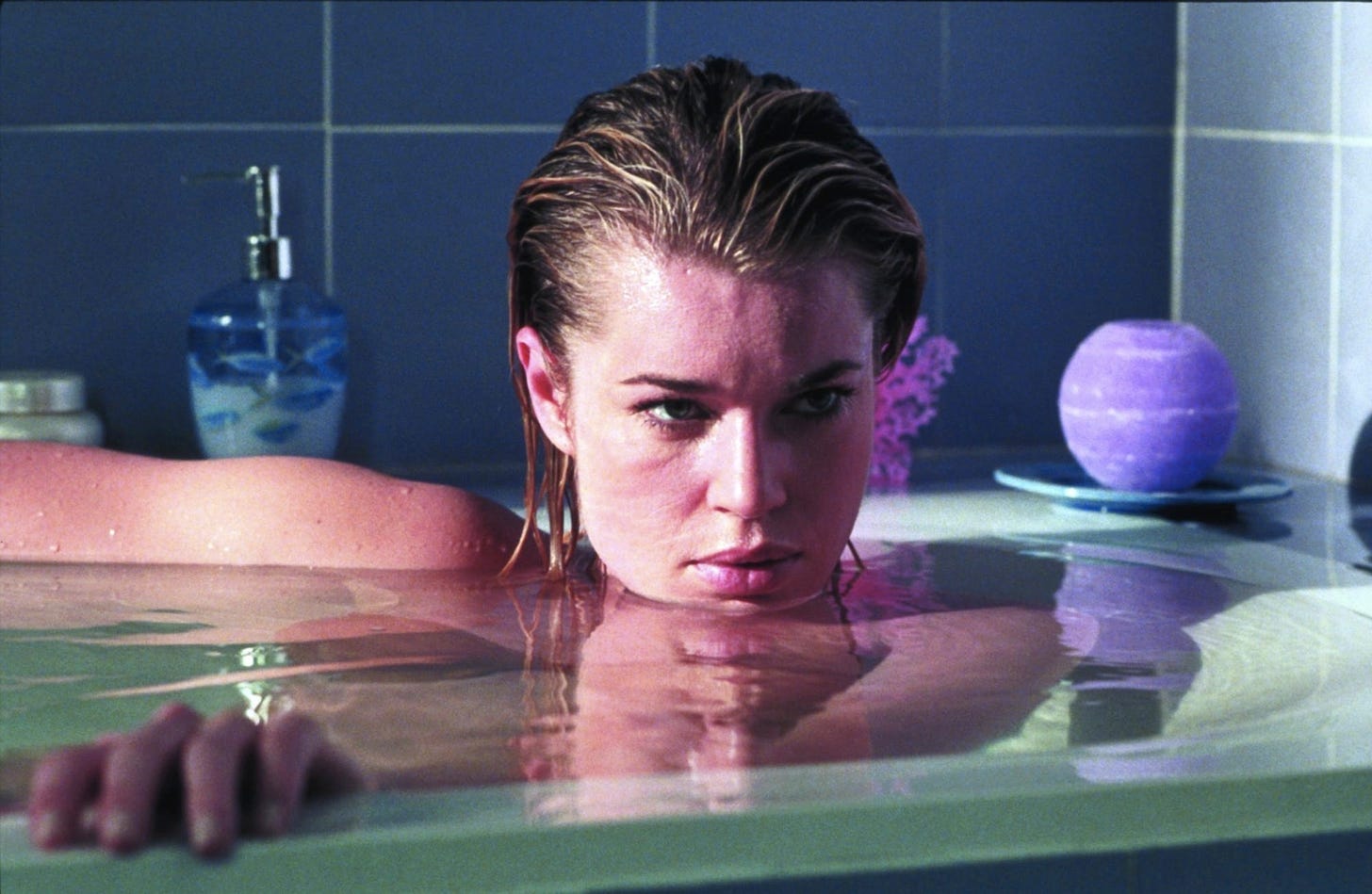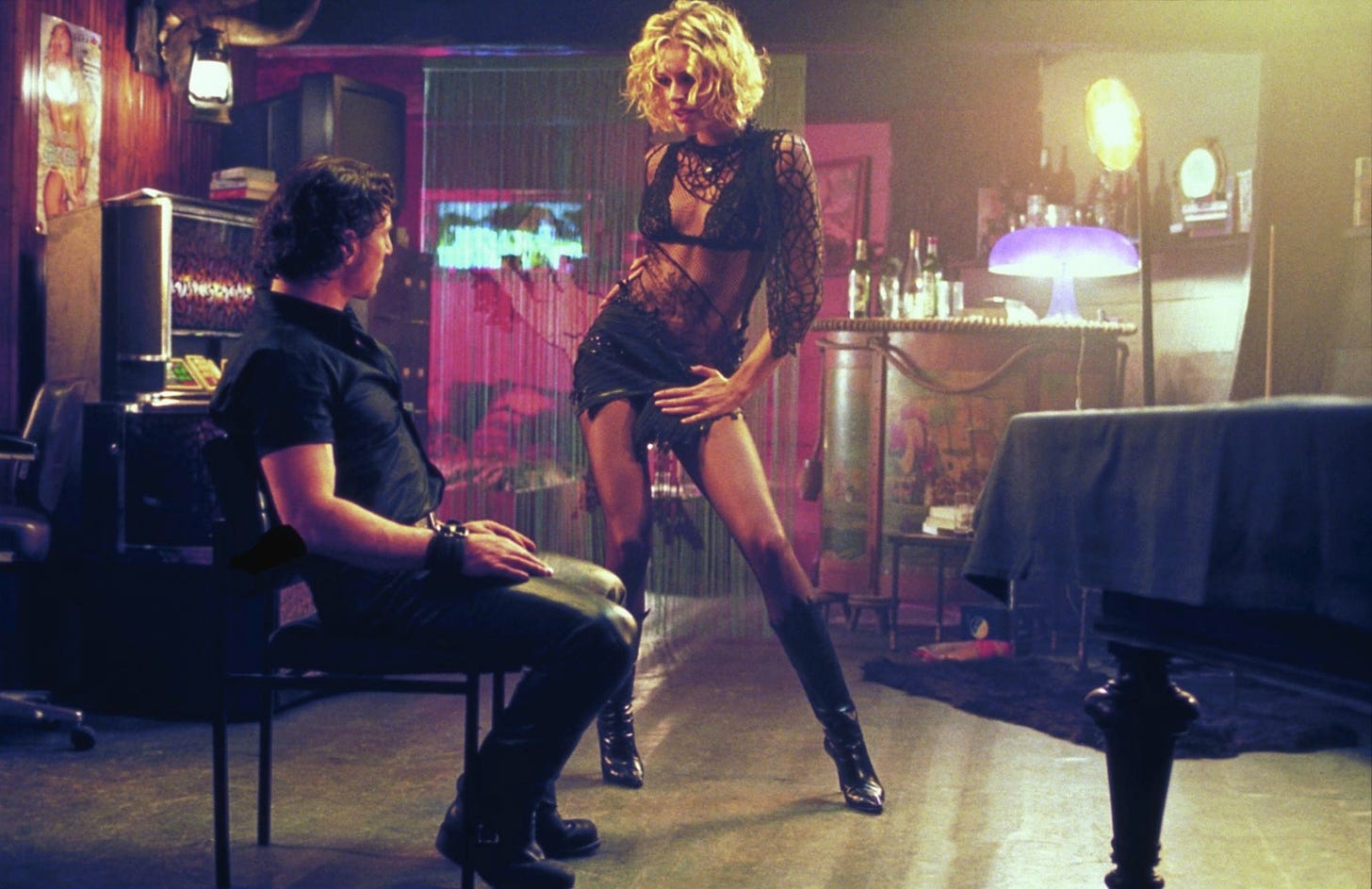Twice More With Feeling: 'Femme Fatale' Revisited
Brian De Palma's 2002 film finds the director reworking his obsessions into a seductive story of redemption.
In order to appreciate Brian De Palma fully, you have to remember how hated he used to be. From the moment De Palma released his first thriller, Sisters, in 1973, he had to dodge accusations of ripping off Hitchcock. “Sisters sent me to the dictionary to confirm the meanings of imitation, parody and homage: I’m back to say that De Palma is guilty of none, but only because he tried them all,” Jerry Oster wrote in his two-and-a-half star review for the New York Daily News. The piece ran beneath a headline reading “‘Sisters’ Too Reminiscent of Hitchcock.” The response to this familiar complaint, for those who admire the director, has always been to cross out the “too” and reply “Yes, and?”
After a while, De Palma distaste became a reflex for many. The Golden Raspberry Awards’ only real contribution to film history will be to serve as a record for what movies, actors, and directors were safe to single out for mockery in their time. Launched in 1980, the Razzies nominated De Palma for its Worst Director “honor” in its inaugural year for his work on Dressed to Kill. Four more nominations followed—for Scarface, Body Double, The Bonfire of the Vanities, and Mission to Mars—making De Palma second only to Renny Harlin and Michael Bay in the category (both of whom racked up six). That those films arrived accompanied by bad press—either for violent content, cost overruns, or troubled productions—made them easy targets. This and the Razzies’ existence-long affliction with Tall Poppy Syndrome assured they’d never miss an opportunity to knock a filmmaker taking a big chance down a peg.
Curiously, the Razzies ignored De Palma’s 2002 film Femme Fatale, which he wrote and directed, leaving the now-defunct Stinkers Bad Movie Awards to pick up the slack. (Despite bestowing “Dishonorable Mentions” on both Days of Heaven and Eraserhead in its first year, the Stinkers lasted until 2006 rather than immediately shutting down in shame.) The Stinkers’ 2002 awards included “Worst Fake Accent (Female),” handed out to Rebecca Romijn (then Rebecca Romijn-Stamos) for her work in Femme Fatale and John McTiernan’s Rollerball remake. Romijn was also nominated for Worst Actress for the same films, both of which received Dishonorable Mentions alongside De Palma’s Worst Director nomination.
That Femme Fatale ended up in the crosshairs is no surprise. Some reviews greeted it rapturously. Others like a boil in need of lancing. In many respects, that was business as usual for De Palma, whose work divided critics into champions and detractors, rarely leaving anyone sitting on a fence. Some glaring exceptions aside, De Palma’s ability to make hits had helped give him cover, but Femme Fatale was decidedly not a hit in November 2002. Those beating it at the box office in its first week included the long-forgotten Ghost Ship in its fifth week of release.
Maybe that’s why Femme Fatale, which arrived after the financial disappointments of Snake Eyes and Mission to Mars, feels like the work of a filmmaker who knew he was getting away with something he might not ever get a chance to do again. Like Sam Peckinpah’s Bring Me the Head of Alfredo Garcia, which followed the poorly received (but quite worthwhile) Pat Garrett and Billy the Kid, Femme Fatale attempts to shove a career’s worth of cinematic obsessions into one film. Alfredo Garcia’s wasn’t Peckinpah’s swan song, nor Femme Fatale the last film by De Palma (who remains alive and, one hopes, still active after last releasing a film in 2019). But both have the unmistakable feel of an artist taking one last ride before the sun goes down.
Keep reading with a 7-day free trial
Subscribe to The Reveal to keep reading this post and get 7 days of free access to the full post archives.





